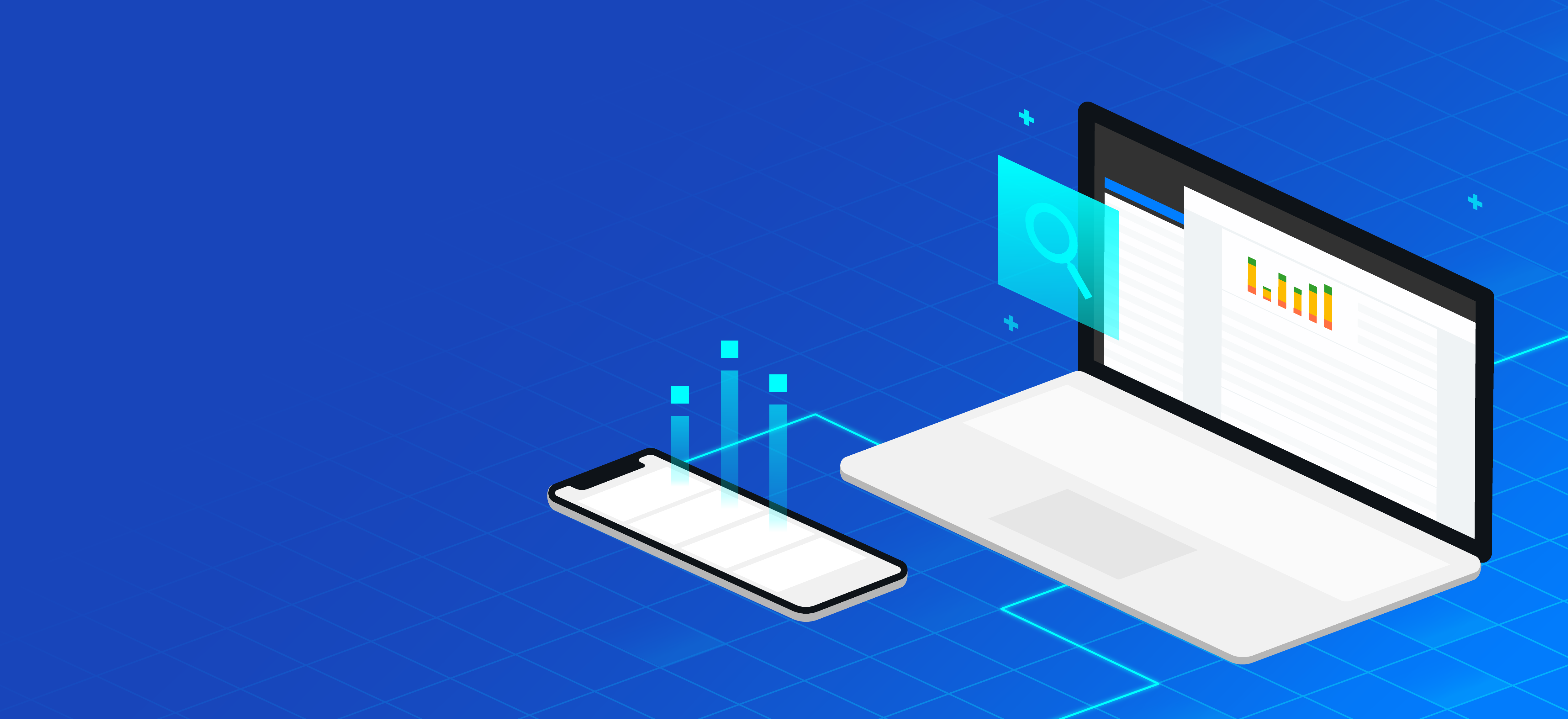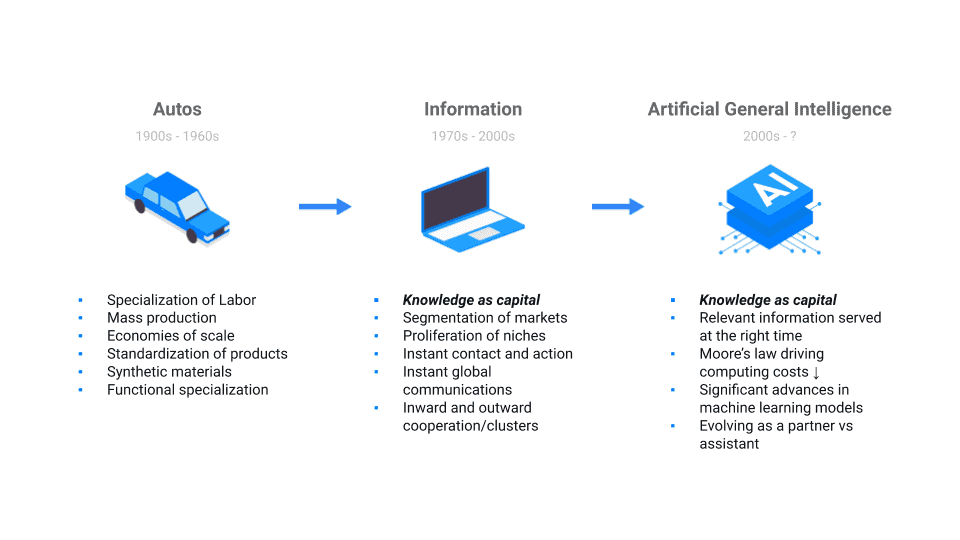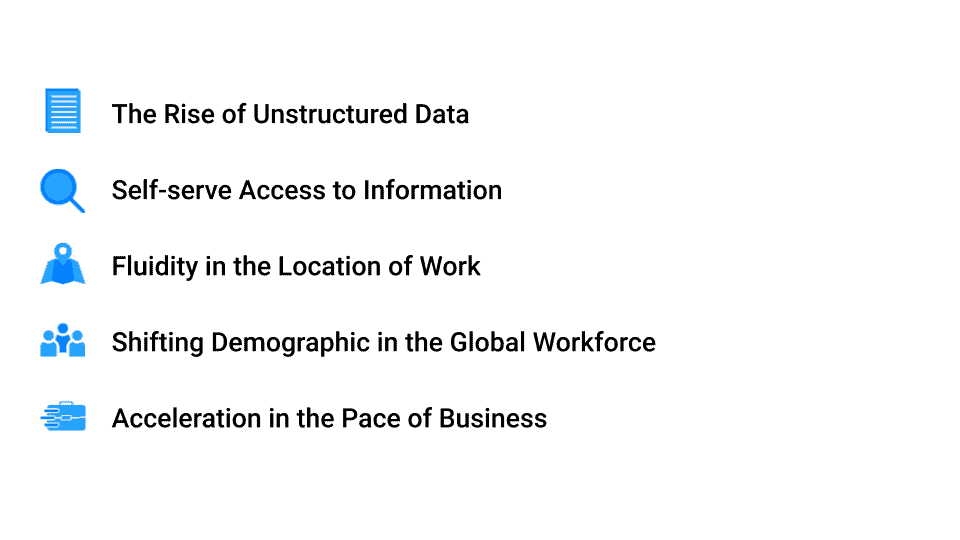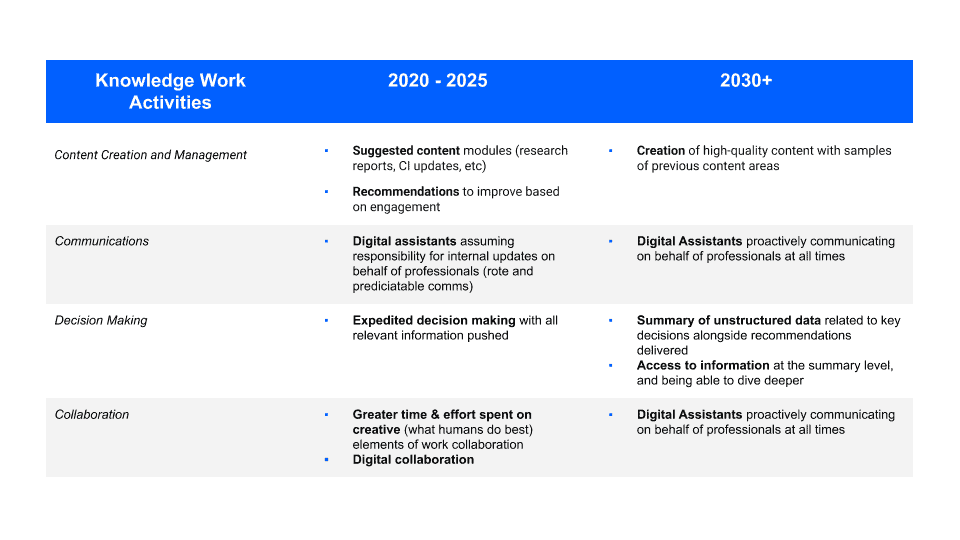The way we work is evolving. Given the circumstances we’re all in today with many of us working from home, knowledge workers will have to adapt to major shifts in the way work gets done during and after the COVID-19 era.
We hosted a webinar to share how knowledge work has evolved over time; how artificial intelligence is being used to enhance research & analysis; and what knowledge work will look like five and ten years into the future.
John Reid-Dodick (who goes by JRD), AlphaSense’s Chief People Officer, shared his perspective on the evolution of work to date & trends that are accelerating change today. In addition, Thomas Keeley, Product Manager for Mobile & Workflow, showcased how AI-based market intelligence tools can enhance research & analysis workflows.
See the key insights from JRD and Tom below:
The Evolution of Work
Historically, the evolution of work has been driven by technological innovation. . From 1900-1970, the age of Autos, new concepts such as specialization of labor, mass production, and economies of scale greatly impacted how work (mostly manual labor) was done.Moving from the 1970s to the early 2000s, a period known as the age of Information, we first began seeing knowledge emerge as a form of capital. As we began to create far more structured data than ever before, organizations quickly realized that unstructured data could be used as a valuable asset. Today, and in the coming years, we are entering the age of Artificial General Intelligence. Knowledge is still a form of capital, but it now encompasses all of the structured and unstructured data that is available to us 24/7. As a result, AI is evolving from an assistant to a partner in the work we do, due to its ability to provide relevant information exactly when we need it.
Trends Driving Changes in the Way We Work
Let’s take a step back and understand which global trends are affecting the changes in the way we work.
- The Rise of Unstructured Data
Organizations and consumers are generating more data than ever before. By 2025, 80% of data will be unstructured (unstructured data consists of photos, videos, and text files). In comparison to just 10 years ago, we are inundated with new bits of information at all times. - Self Serve Access to Information
Knowledge professionals now have access to critical information (mostly structured data) related to their work without having to rely on large teams or specific people to give them access, unlike before. Tools like Salesforce and Tableau are helping provide this self-serve access to information today, but it is increasingly important now with the rise of unstructured data.
- Fluidity in the Location of Work
According to JRD, who previously advised global companies on distributed workplaces during his time with WeWork, asserted that organizations must evolve their workplace strategy to meet the needs of what knowledge professionals require today: flexibility in where they get their work done.
- Shifting Demographics in the Workplace
Today, millennials account for over 50% of the global workforce. Gen-Z is also joining the workforce. Both groups expect intelligent and well-designed, consumer-like tools provided for them to get their work done. - Acceleration in the Pace of Business
Most importantly, the pace of business acceleration is reaching “supernova”. Our capacity to adapt is being outpaced by technology, the market, and climate change. If we cannot adapt to the change of business independently, then we need to use tools that enable us to accelerate our ability to adapt over the coming years.
Defining Knowledge Work
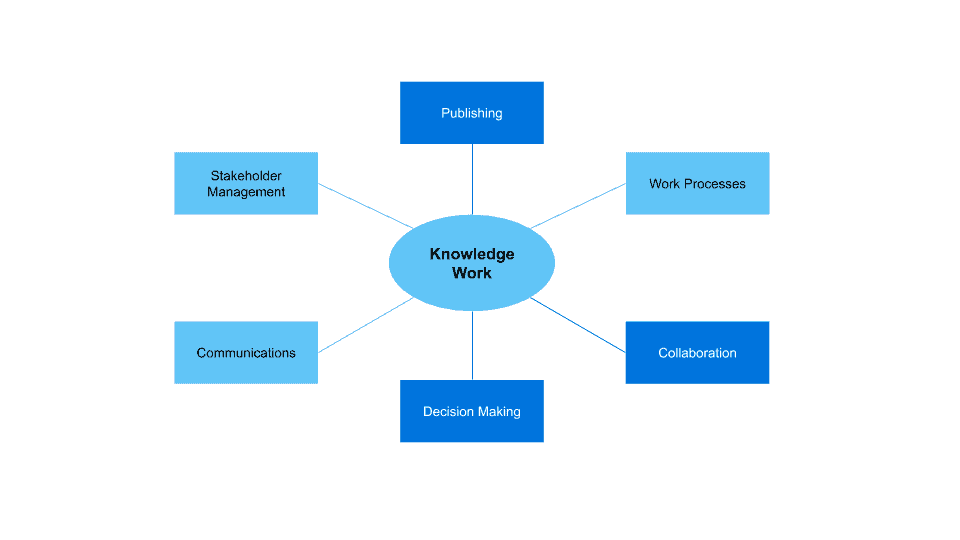
Tracking Competitors and Industry Peers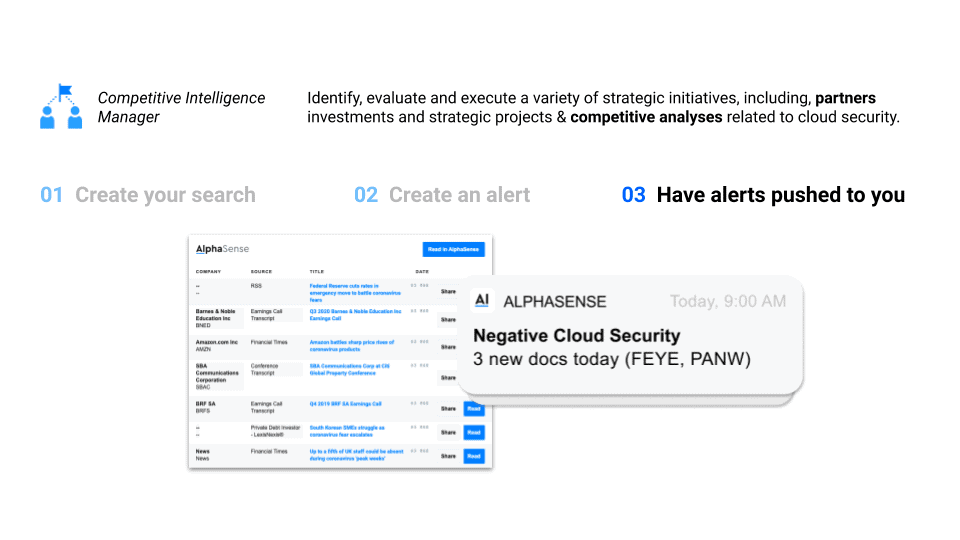
Measuring the Impact of COVID-19 in Industries
Developing Better Strategic Recommendations 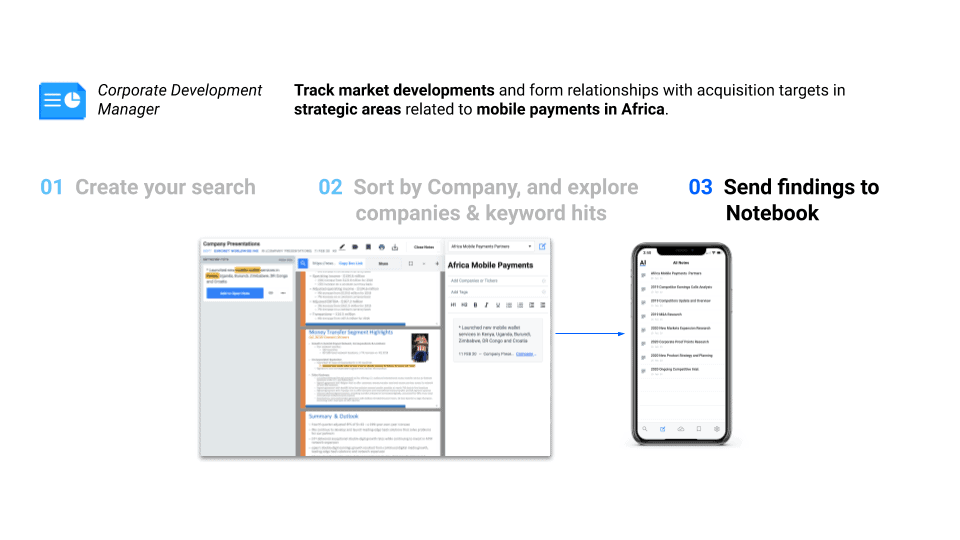
Looking into the Future

What does the future of knowledge work look like?
In the next five years the two most interesting areas of change will be:
- How expedited decision making will evolve with our work tools always pushing the most relevant information to us vs us having to go and fact-find to make critical decisions.
- Greater time and effort spent on creative and digital collaboration as our tools make research more efficient.
In the next ten years the two interesting areas of change will be:
- Summarization of unstructured data in context to decision making.
- Our tools will create high-quality content for us based on past examples vs only suggesting ways to improve content.
In the not so distant future, imagine having detailed briefings, with analyses, on any topic autogenerated for you based on topics or themes you’re working on. Or even having an earnings call summarized and sent to you immediately after it takes place.
Knowledge work is evolving with AI and knowledge professionals will need to focus on helping reduce bias in these tools alongside developing their EQ (Emotional Intelligence) to thrive in the new age of Artificial General Intelligence.
